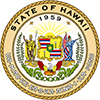Medicaid fraud, waste, or abuse depletes valuable public funds meant to provide healthcare and services to low-income and vulnerable citizens in Hawaii. Medicaid is funded by your Federal and State tax dollars. You can assist in fighting fraud, waste, and abuse by reporting potentially suspicious behavior or incidents. MedQUEST encourages anyone who observes instances of potential Medicaid fraud, waste, or abuse to contact one of the fraud hotlines for the QUEST health plans, or contact the Department of Human Services.
QUEST Integration Health Plans:
ALOHA CARE: 24/7 Reporting Hotline: 1-855-973-1852.
KAISER: (808) 432-5330, toll-free 1-800-651-2237 or 711 (TTY).
UNITED HEALTH CARE: Fraud Hotline number: 1-844-359-7736
HMSA: (808) 948-5166 on Oahu or 1-888-398-6445 toll-free on the Neighbor Islands and the Mainland
OHANA: 24/7 Hotline: 1-866-678-8355
Department of Human Services:
Medicaid Recipient Fraud – If you think someone may be receiving Medicaid benefits to which they are not entitled to, including medical coverage, financial assistance, food stamps, etc. you can call the Investigations Office of the Benefits Employment & Support Services Division. The hotline number is (808) 587-8444.
Medicaid Provider Fraud – To report suspected fraud by Medicaid Providers, which include doctors, nurses, hospitals, durable medical equipment suppliers, home health services, physical therapy, personal care attendants, etc. you can call the Medicaid Investigator at: (808) 692-8072.
Some examples of provider fraud include:
- Billing for a service and/or equipment that wasn’t provided
- Billing for a more expensive service/item than what was received
- Billing for items and services that the patient no longer needs
- Overcharging for equipment or services
- Concealing ownership or associations in a related company
- Paying a “kickback” in exchange for a referral for medical services or equipment
- Billing more than once for the same service
- Using false credentials such as diplomas, licenses or certifications, or
- Ordering tests or prescriptions that the patient does not need
- Falsifying times for services billed on an hourly basis




